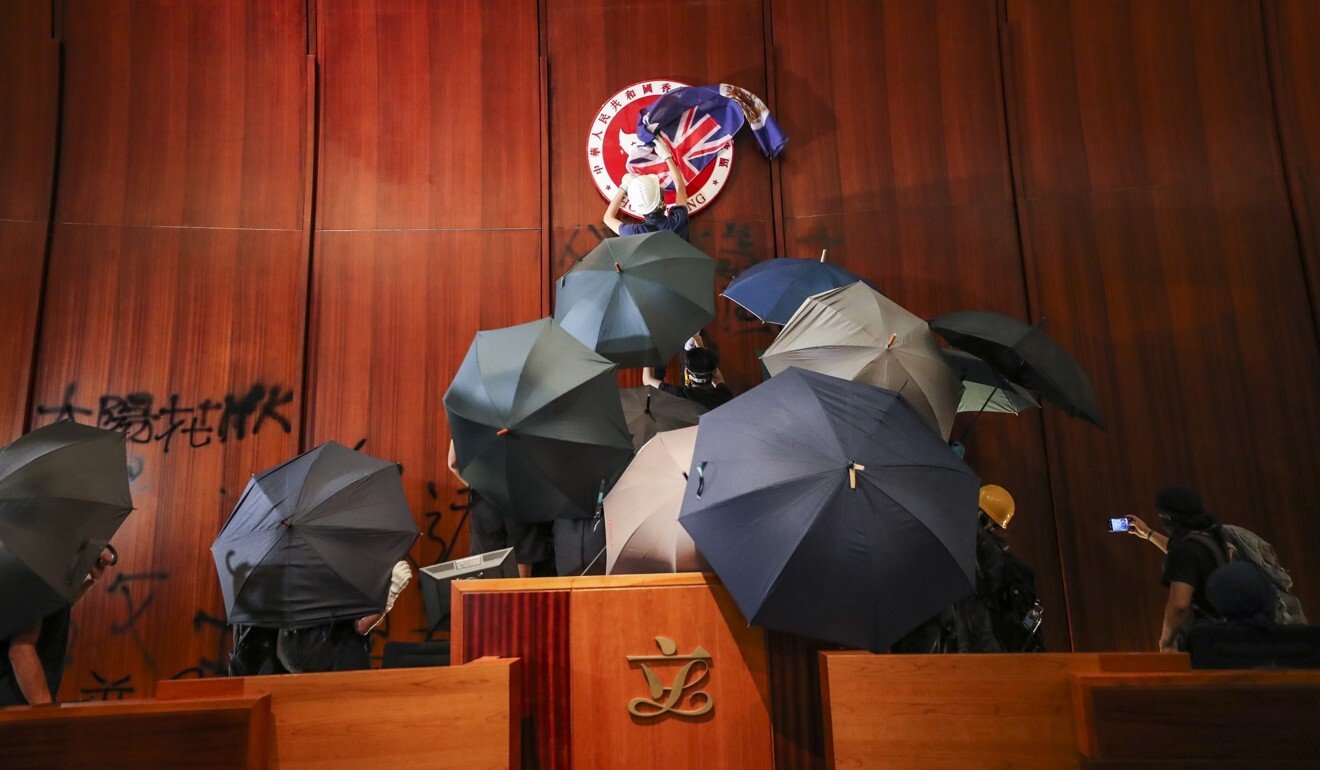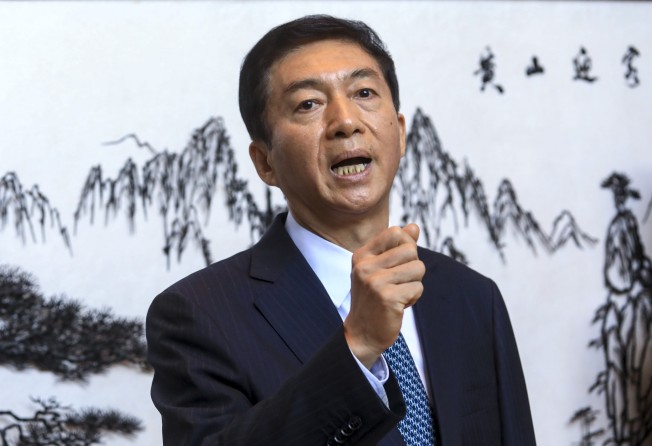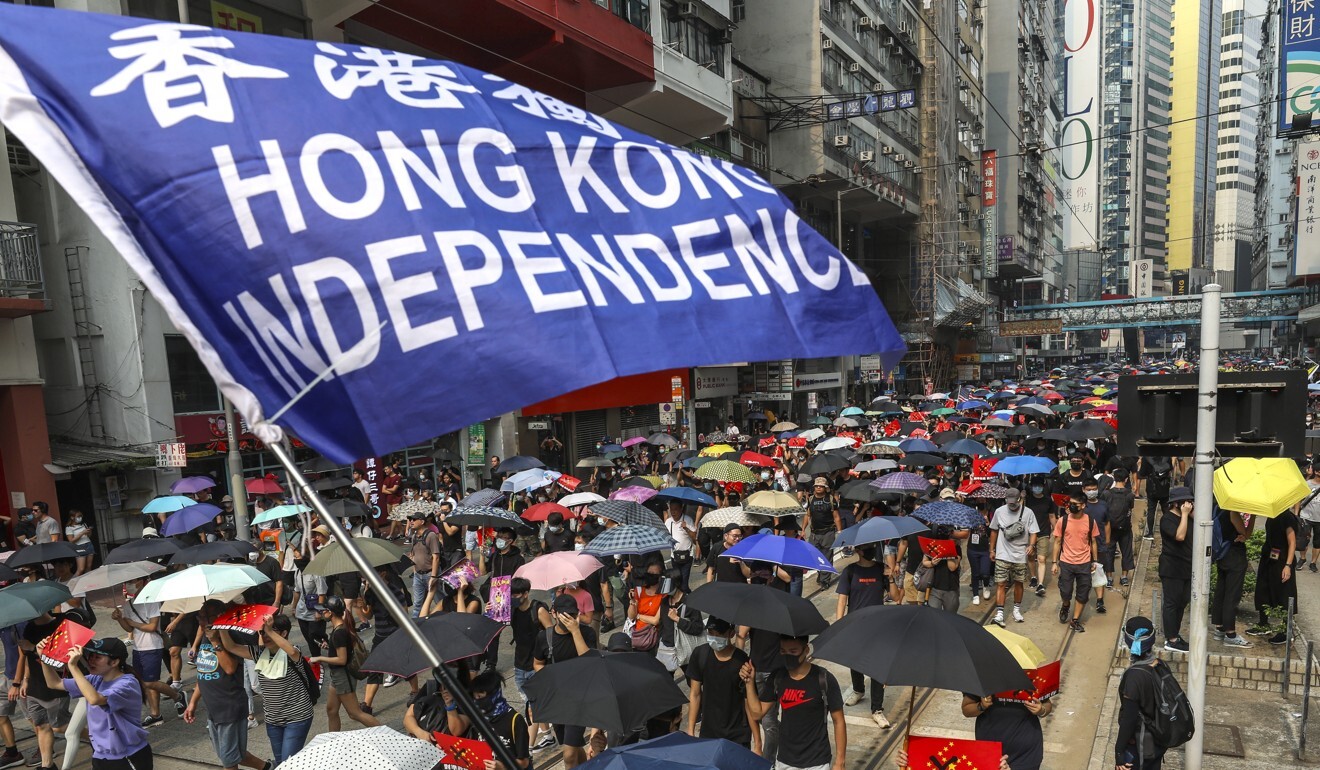
Coronavirus pandemic and protests highlight need for national security legislation in Hong Kong, says Beijing’s top official in city
- Director of the central government’s liaison office in Hong Kong, Luo Huining, also urged the city to oppose acts that threatened its stability
- Official makes his remarks on ‘National Security Education Day’

Being hit by the double whammy of the coronavirus pandemic and social unrest showed that it was urgent for Hong Kong to do more in protecting national security, according to Beijing’s top representative in the city.
Luo Huining, director of the central government’s liaison office in Hong Kong, also urged the city to work together in opposing acts that threaten its stability.
“We must fight the pandemic together, and oppose [the notion of] ‘if we burn, you burn with us’,” he said in a video message, in a reference to a popular slogan of last year’s anti-government protest movement.
“As long as everyone fulfils their responsibility, and builds this city together, we can overcome all kinds of risks and challenges.”

Luo’s message was among a series of speeches released on the website of the think tank Hong Kong Policy Research Institute to mark China’s “National Security Education Day” on Wednesday.
It came after Beijing has escalated its war of words with Hong Kong’s opposition lawmakers, accusing them of blocking and disrupting legislative proceedings, with an “if we burn, you burn with us” mentality.
Under Article 23 of the Basic Law, Hong Kong’s mini-constitution, the city must enact national security legislation focused on treason, secession, sedition and subversion.
Such efforts had stalled after hundreds of thousands of people took to the streets to oppose an Article 23 bill in 2003, but the city’s government has been facing mounting pressure from Beijing to relaunch it amid the social unrest that erupted in June last year.
“Even when the whole city needed to fight against the epidemic, some people sought chances to set fire to block the road and make explosives, threatening the personal safety of citizens and disrupting the social public order,” Luo said.
“I believe those who love the country and Hong Kong will reach a consensus to work promptly to maintain the national security legal system and enforcement mechanism.”
Luo also said China’s ongoing fight against the pandemic was now a war related to the nation’s security, especially in areas such as public health.
His appeal came as the State Council announced that the office’s deputy director, Yang Jian, 61, was stepping down from the position. Yang, who had passed the retirement age of 60 for vice-ministerial officials in China, was previously party chief of Southern Newspaper Media Group on the mainland and joined the liaison office in 2013.
In a separate video clip released on the website, Hong Kong’s security chief John Lee Ka-chiu said that while the government would continue to create an environment for the legislation of Article 23, it would not turn a blind eye to “home-grown terrorism” after police found high explosives soon after the anti-government protests broke out.
Commissioner of Police Chris Tang Ping-keung also said in another video message that the force had been working with the Department of Justice to consider invoking anti-terrorism legislation, which had never been used before, to prosecute bomb suspects.

He said police would use the United Nations (Anti-Terrorism Measures) Ordinance, enacted in Hong Kong in 2002, to target acts by individuals or groups linked to several seizures of explosives in hospitals, public transport interchanges and MTR carriages since the Lunar New Year. The Post reported last month that the force was considering such a move.
The bomb incidents came as the government faced mounting pressure to step up coronavirus prevention measures, including closing the border with mainland China, in the battle against the first wave of Covid-19 infections.
“People usually associate terrorism with attacks initiated by large international groups like al-Qaeda, ISIS and the Taliban. But some attacks in recent years overseas were influenced by home-grown groups,” Tang said.
“In Hong Kong, rioters adopted extreme strategies to cause panic for society to force the government to close its borders with complete disregard for public safety.”
Tang added the force would step up its counterterrorism efforts by enhancing intelligence-gathering and boosting manpower for enforcement.
Chief Executive Carrie Lam Cheng Yuet-ngor also said in a video message that last year’s social unrest had made society feel more strongly about the importance of protecting national security.
The pandemic had also triggered “an unprecedented crisis to the security of humanity, and highlighted the importance of regional cooperation to ensure the security of various nations”.
She urged society to think about how to further maintain national security through education.
Articles written by former chief executives Tung Chee-hwa and Leung Chun-ying were also published on the website. They both echoed Luo and Lam’s calls regarding the importance of national security.